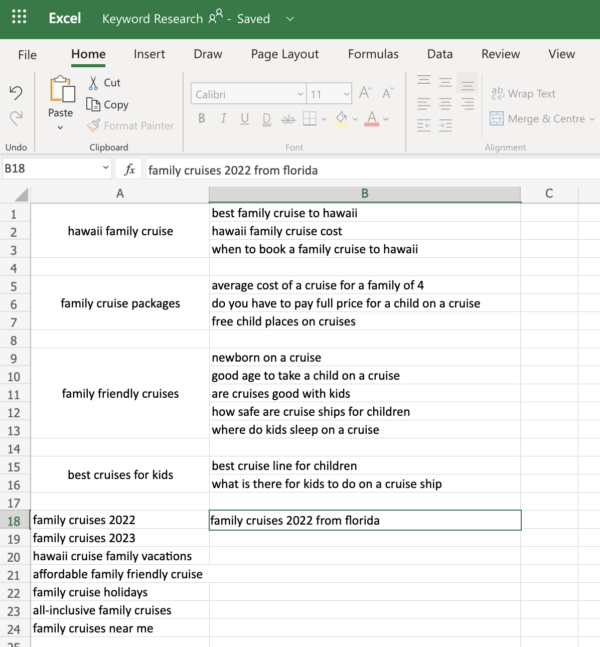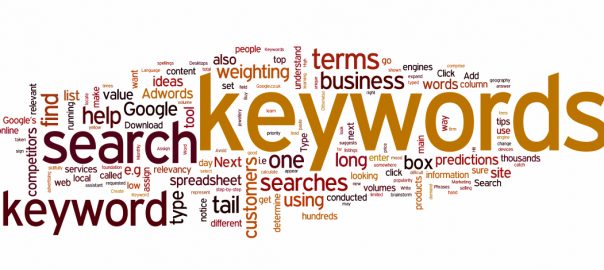Keywords Writing & Creation
Original price was: £89.99.£39.99Current price is: £39.99.
Description
£39.99 per hour
We can get to work and start creating your keywords , using regularly searched terms


How much would it cost to have content written for every page on my website?
There are several factors that will need to be taken into account to price up your website content. Content writers will price it differently; usually by days or by page.
A content writer may calculate how many days it will take to plan, produce, and edit the content – you can expect the day rate to be anything from £350 – £500. This pricing model is normally for larger writing projects, which may include establishing your brand messaging and tone of voice.
Other content writers, typically for a smaller project, will price up per page – you can expect this to be around £100 – £200 per page on your website.
Factors affecting the cost of your website content:
- Research
- Interviews – with you or your staff
- Number of pages to write
- Difficulty of the topic
- Tight deadlines
What Are Keywords
Have you ever noticed the highlighted words in an Internet article or blog? These are known as keywords, terms that are used to classify or organize digital content or to facilitate an online search for information. Prior to digital technology, on which we all depend these days, keyword referred to a significant or memorable term in the title, abstract, or text of a print document used as the index entry. Keyword is also widely used to mean a word or concept of great significance.
In many ways our lives revolve around the keywords we have chosen to or let define us. Keywords determine the people we attract. Our life stories are composed by these words. It’s much easier to hold on to our words and stories than to change them, even when they are no longer relevant or serve our highest good. Changing them, however, can lead to a greater sense of wholeness and fulfillment.
Technical Bits
Keywords
Keywords are words and phrases, used on their own or grouped together and make up the different elements of your website: web pages, blog posts, image descriptions, etc. They play a big part in determining whether your site will be found by the search engines. As the search spiders crawl around the internet, they group content by key word, or topic. This means that Google, for example, has hundreds of millions of databases organised by key words, sentences and phrases. This enables Google to find the information that the searcher is looking for much more quickly than if everything was stored in one big, jumbled-up database.
There are two types of keywords – Head keywords, which are often single words or short terms but with a very large search volume. For example ‘“runners” or “hotel” or “doctor”. It is hard to rank well for these words as they are so generic and can be found in so many places on the internet.
The second type of keywords are longtail keywords. These are descriptive phrases or sentences and are much more target specific. For example “family lawyer in Dun Laoghaire” or “website designer for architects in Dublin”. Given that these keywords are more specific, they are usually easier to rank well for.
If you want to dominate the search results for certain keywords, you’ll have to get really specific in how you use them on your site. Also, most people searching on the internet now know that if they type in a specific search request, they are more likely to get a search result that matches what they are looking for.
Planning Your Keywords
How to plan your keywords
When you think about which keywords you want to include on your site, it is important to research what kinds of words people use on their online searches. It is the wording of these searches that you want to match as much as possible in your site content. Think about the words people type into Google in order to find digital content (like what’s on your website!) and that’s basically what keywords are.
Steps to keyword planning:
-
Before starting anything, think about your mission. Think about questions like: Who are you? What is your website about? What makes you special? Who are you trying to reach? And what promises do you make on your website?
-
The second step of keyword research is creating a list of your keywords. With your mission in mind, try to get into the heads of your potential buyers. What will these people be looking for? What kind of search terms could they be using while looking for your amazing service or product? Ask yourself these questions and write down as many answers as possible.
If your mission is clear, you will have a pretty clear image of your niche and your USP. These are the terms you want to be found for.
What To Consider
Search Intent
Today’s SEO strategies should for the most part revolve around answering the questions people have. Whenever someone enters a search query into a search engine, they are on a quest for something. Every type of question needs a specific answer.
When planning your content, always ask yourself these questions. There are four types of intents:
-
Informational intent: Just like it says on the tin, people are trying to find information on a specific topic.
-
Navigational intent: People want to access a specific website by entering the term in a search engine.
-
Commercial intent: People want to buy something sometime soon and are doing research before making a purchase.
-
Transactional intent: People are looking to buy something after doing their commercial intent searches.
Find out which kinds of intent apply to you and try to match these search intents, literally giving people what they want.
How We Compare
We charge just £39.99 per hour for writing your keywords.
how does this compare ?
How much would it cost to have content written for every page on my website by someone else?
There are several factors that will need to be taken into account to price up your website content. Some will price it differently; usually by days or by page.
A content writer may calculate how many days it will take to plan, produce, and edit the content – you can expect the day rate to be anything from £350 – £500. This pricing model is normally for larger writing projects, which may include establishing your brand messaging and tone of voice.
Other content writers, typically for a smaller project, will price up per page – you can expect this to be around £100 – £200 per page on your website.
Factors affecting the cost of your website content:
- Research
- Interviews – with you or your staff
- Number of pages to write
- Difficulty of the topic
- Tight deadlines





